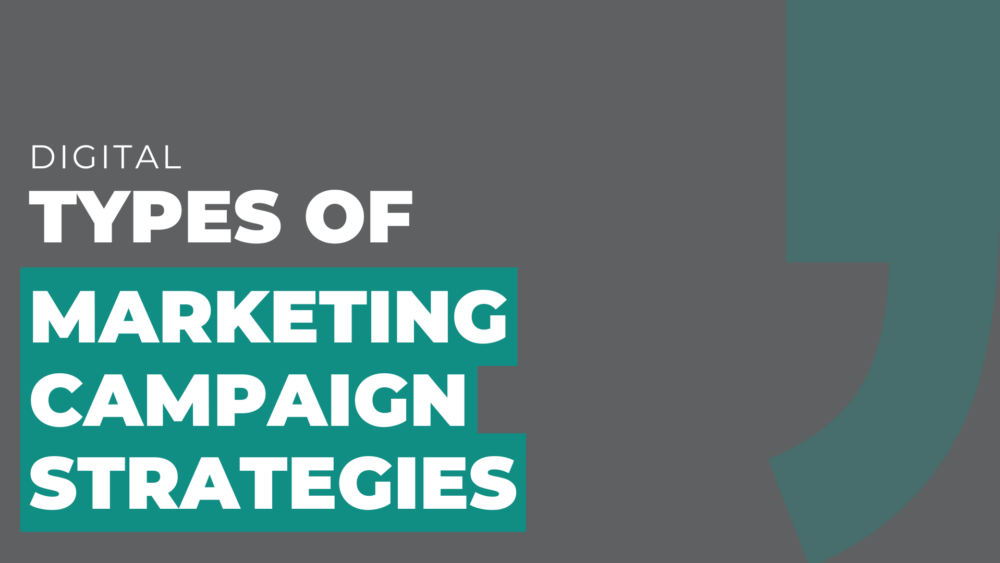Marketing is all about connection.
But what works best?
What are the main types of marketing campaign strategies?
- Brand Awareness Campaigns
- User-Generated Content (UGC) Campaigns
- Product Launch Campaigns
- Seasonal Push Campaigns
- Email Marketing Campaigns
- Influencer Marketing Campaigns
- Rebranding Campaigns
- Gamification Campaigns
- Referral Campaigns
- Crisis Management Campaigns
From building awareness to driving sales, each campaign type serves a unique purpose.
If you’re just getting started, this guide will break things down and help you find the right fit for your business.
What Are Marketing Campaigns?
Marketing campaigns are organized efforts focused on a specific goal — like launching a product, growing your brand, or reaching new customers.
Think of a campaign like a story you’re telling to connect with your audience, using different tools like ads, social media, or emails to deliver the message.
1.Brand Awareness Campaigns
Building brand awareness is like introducing yourself at a party.
The goal is to make a memorable first impression.
Brand awareness campaigns often use social media, digital ads, or even guerilla tactics to get people talking about your business.
Example: A local Atlanta coffee shop might sponsor events in Piedmont Park or offer free samples on 14th Street to spark curiosity and word of mouth.
Types of Campaigns That Boost Awareness:
- Social Media Campaigns: Engaging posts and paid ads to target specific audiences.
- Influencer Partnerships: Collaborating with influencers who align with your brand.
- Content Marketing: Blogging, videos, and storytelling that reflect your values and expertise.
2.User-Generated Content Campaigns
User-generated content (UGC) is like having your customers do the talking for you—and nothing’s more engaging than authentic stories.
A UGC campaign invites your audience to share their own photos, videos, or reviews that feature your product or service.
Example: A pet brand could run a photo contest asking dog owners to post pictures of their furry friends enjoying the product, tagging the brand for a chance to win a prize.
Why UGC Works:
- It’s relatable and builds trust.
- It creates a sense of community.
- It gives your brand content with minimal effort on your part.
3.Product Launch Campaigns
Launching a new product is exciting — but without a solid plan, it’s like throwing a party and forgetting to send invitations.
A product launch campaign helps build anticipation and ensures people are ready to buy when the product drops.
Example: An Atlanta-based fitness startup might tease a new app by sharing behind-the-scenes development content and offering pre-launch sign-ups for early access.
Key Steps for a Product Launch:
- Start with teasers to build buzz.
- Use email campaigns to keep potential buyers informed.
- Follow up with targeted ads once the product is live.
4.Seasonal Push Campaigns
Seasonal push campaigns are tied to specific times of the year, like holidays, back-to-school, or summer sales.
They leverage the natural excitement and buying habits tied to these moments.
Why Seasonal Campaigns Are Effective:
- People are already in a spending mindset during these times.
- Limited-time offers encourage quick action.
Example: A Georgia-Pacific paper brand might run a “Get Ready for Back-to-School” campaign, featuring classroom must-haves.
5.Email Marketing Campaigns
Email campaigns send updates, promotions, and other info straight to people’s inboxes.
They’re great for staying connected with your audience.
Example: An Atlanta restaurant might email a monthly list of specials, events, and discounts.
6.Influencer Marketing Campaigns
Influencer campaigns work with people who have lots of followers.
Their audience trusts them, so their recommendations can boost your brand.
Example: A fitness company could team up with Atlanta trainers to show off its newest gear.
7.Rebranding Campaigns
Rebranding is about giving your business a fresh look or new message.
It’s helpful when your brand is changing or growing.
Example: A bakery might run a rebranding campaign to show off a new menu and modern design.
8.Gamification Campaigns
Gamification makes marketing fun by turning it into a game or challenge.
It’s a great way to get people involved.
Example: A tech company could launch a trivia game online and give prizes to top players.
9.Referral Campaigns
Referral campaigns get your happy customers to bring in new ones.
You can reward them with discounts or freebies for each referral.
Example: A subscription box could give a free month to customers who refer their friends.
10. Crisis Management Campaigns
Crisis campaigns help protect your brand when there’s a problem.
They focus on clear and honest communication to fix trust with your audience.
Example: A drink company could explain a recall and show how they’re fixing the issue.
Just Getting Started?
If marketing campaigns feel overwhelming, start small.
Begin with one goal — maybe it’s growing your Instagram following or driving traffic to your website.
Over time, as you learn what works, you can layer in more strategies.
Remember, every campaign is an experiment, and each one teaches you something new about your audience.
At the End of the Day
Marketing is about building relationships.
The types of marketing campaign strategies you choose should match your goals and your audience.
Whether you’re raising awareness, boosting engagement, or launching something new, every campaign is a chance to tell your story.
And here in Atlanta, where creativity thrives, there’s no shortage of inspiration to draw from.
Ready to take the next step? Let’s make something great together.


Comments are closed.